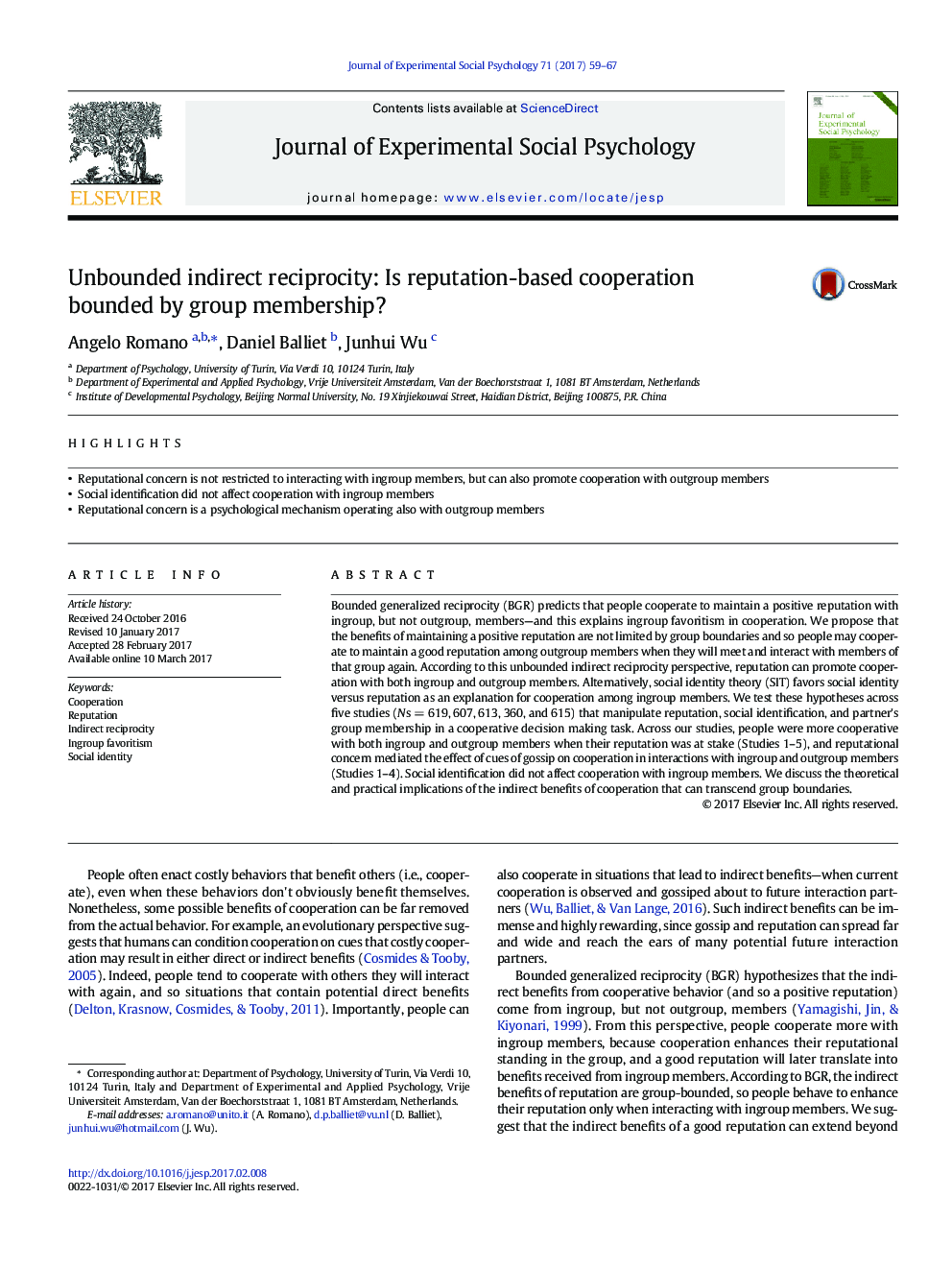| کد مقاله | کد نشریه | سال انتشار | مقاله انگلیسی | نسخه تمام متن |
|---|---|---|---|---|
| 5045619 | 1475852 | 2017 | 9 صفحه PDF | دانلود رایگان |
- Reputational concern is not restricted to interacting with ingroup members, but can also promote cooperation with outgroup members
- Social identification did not affect cooperation with ingroup members
- Reputational concern is a psychological mechanism operating also with outgroup members
Bounded generalized reciprocity (BGR) predicts that people cooperate to maintain a positive reputation with ingroup, but not outgroup, members-and this explains ingroup favoritism in cooperation. We propose that the benefits of maintaining a positive reputation are not limited by group boundaries and so people may cooperate to maintain a good reputation among outgroup members when they will meet and interact with members of that group again. According to this unbounded indirect reciprocity perspective, reputation can promote cooperation with both ingroup and outgroup members. Alternatively, social identity theory (SIT) favors social identity versus reputation as an explanation for cooperation among ingroup members. We test these hypotheses across five studies (Ns = 619, 607, 613, 360, and 615) that manipulate reputation, social identification, and partner's group membership in a cooperative decision making task. Across our studies, people were more cooperative with both ingroup and outgroup members when their reputation was at stake (Studies 1-5), and reputational concern mediated the effect of cues of gossip on cooperation in interactions with ingroup and outgroup members (Studies 1-4). Social identification did not affect cooperation with ingroup members. We discuss the theoretical and practical implications of the indirect benefits of cooperation that can transcend group boundaries.
Journal: Journal of Experimental Social Psychology - Volume 71, July 2017, Pages 59-67
